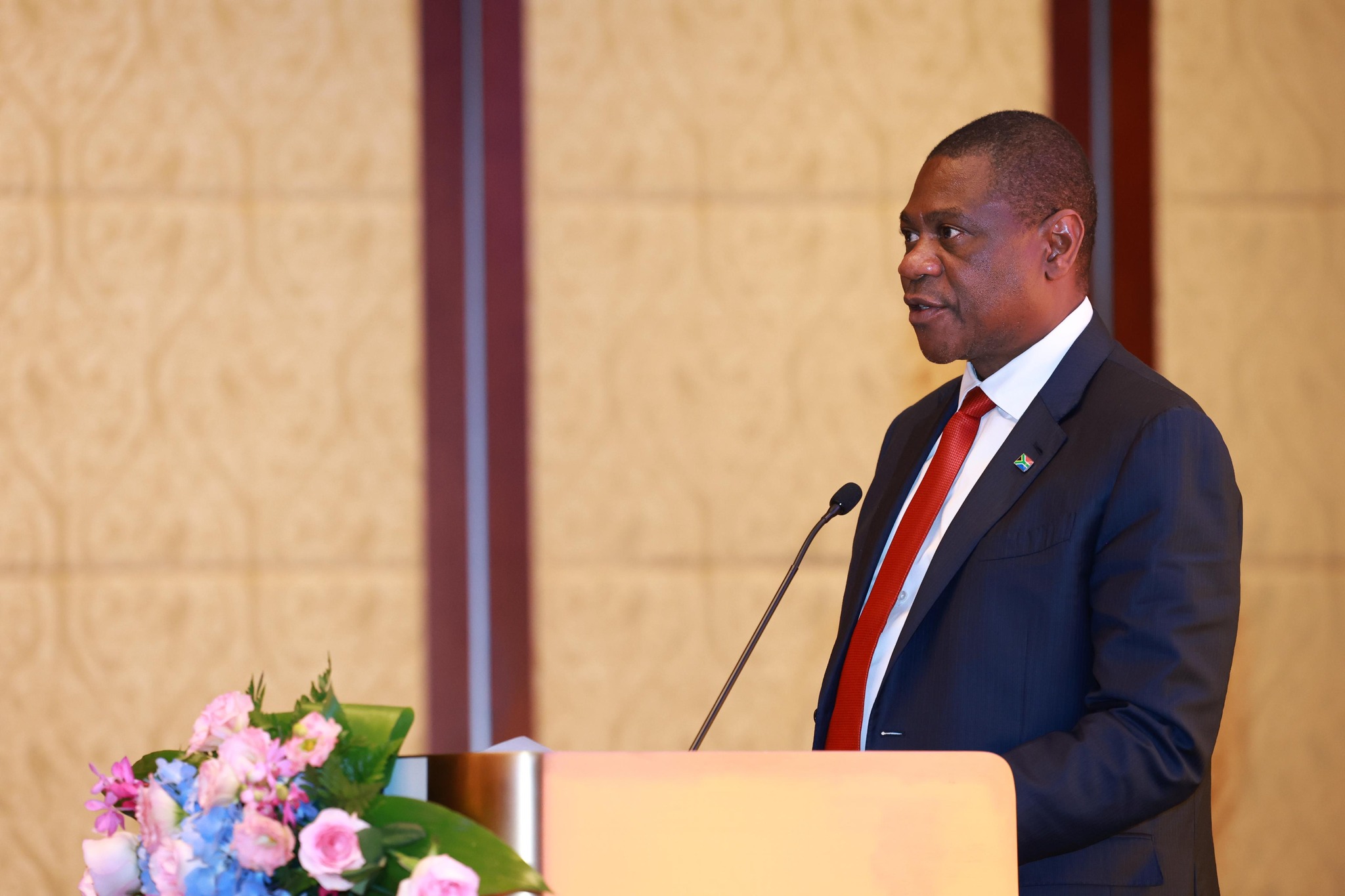Mashatile Calls for Balanced Trade as South Africa-China Ties Deepen
The economic relationship between South Africa and China has evolved considerably since the establishment of diplomatic ties in 1998.

- Country:
- South Africa
At the recent South Africa-China Investment Forum held during the China International Supply Chain Expo (CISCE) in Beijing, South Africa’s Deputy President Paul Mashatile addressed a critical yet longstanding challenge in the flourishing relationship between South Africa and China: the persistent trade imbalance heavily weighted in China’s favour. While the two nations have enjoyed significant gains in investment and bilateral cooperation over the years, Mashatile made it clear that now is the time to strategically recalibrate the economic partnership for greater equity and sustainability.
Trade Ties Marked by Growth and Imbalance
The economic relationship between South Africa and China has evolved considerably since the establishment of diplomatic ties in 1998. China has become South Africa’s largest trading partner, and in return, South Africa is China’s leading partner in Africa. However, the structure of the trade relationship has raised concerns in Pretoria.
“South Africa’s trade imbalance with China is mostly attributable to the nature of our trading relationship,” Mashatile said. “South Africa mainly exports raw materials and minerals, while importing manufactured and capital goods from China.”
This asymmetry is reflected in hard numbers. The bilateral trade deficit has ballooned from less than US$1 billion between 1988 and 2000 to US$9.71 billion by 2023. Since the inception of the Forum on China-Africa Cooperation (FOCAC), the total accumulated cash outflow from South Africa to China has reached an astonishing US$114.83 billion.
Strategic Shift Needed in Trade Approach
In his address, Mashatile called for an urgent re-evaluation of trade dynamics, urging both countries to embrace a coordinated, strategic approach to trade and investment. He cited challenges such as market access, tariff and non-tariff barriers, geographic distance, and competition from other exporting countries as key obstacles to a more balanced exchange.
“We need to develop a more coordinated and strategic approach… expanding South Africa’s export portfolio and encouraging value-added exports is essential,” he said.
Mashatile stressed that simply increasing exports was not enough. The type of exports mattered—South Africa must pivot toward beneficiated goods, agricultural products, and manufactured exports to strengthen its economic leverage.
Chinese Investment in South Africa: A Catalyst for Growth
Despite the trade imbalance, the Deputy President acknowledged the positive impact of Chinese investment across multiple sectors of South Africa’s economy, including banking, manufacturing, telecommunications, and renewable energy.
Among the most notable investments:
-
The Industrial and Commercial Bank of China (ICBC) acquired a 20% stake in Standard Bank for US$5.5 billion, signifying one of the most significant Chinese investments on the African continent.
-
Electronics giant Hisense, which entered South Africa in 1997, later established a full-scale industrial park in 2013.
-
Tech leaders ZTE and Huawei Technologies have also expanded their operations, contributing to South Africa’s digital economy and ICT infrastructure.
Over the last decade, 48 Chinese companies have invested more than US$11.69 billion in South Africa, boosting industrial capacity and creating employment opportunities.
Opportunities for Future Collaboration
Mashatile underscored that the time is ripe to explore new sectors for bilateral cooperation, including:
-
Renewable energy and green hydrogen
-
Energy storage technologies
-
Pharmaceuticals and medical devices
-
Infrastructure and logistics
-
Special Economic Zones (SEZs)
-
Digital economy and innovation ecosystems
-
Beneficiation of critical minerals
He encouraged Chinese investors to capitalise on the African Continental Free Trade Area (AfCFTA), which offers expanded access to a 1.3 billion-person market, enabling supply chains and value chains to scale across the continent. This, he argued, would not only benefit South Africa but help catalyse regional development and integration.
Leveraging Multilateral Platforms for Shared Prosperity
Mashatile also noted the deepening cooperation between South Africa and China in multilateral institutions such as the United Nations (UN), G20, and BRICS, the latter of which now comprises ten member states.
These platforms, he said, enable both nations to advocate for the interests of developing countries, particularly on issues like climate finance, reform of global governance, and equitable trade practices.
“We value this longstanding relationship because it has been established on a shared vision for a prosperous future,” Mashatile concluded. “Strategic partnerships with China can create balance and play a significant role in South Africa’s economic growth, job creation, and overall development.”
Rebalancing a Strategic Partnership
As South Africa-China economic ties continue to grow, addressing the trade imbalance has become a central policy imperative for Pretoria. With renewed calls for value-added exports, market access, and diversification, Mashatile’s address signaled a forward-looking pivot towards a more balanced, inclusive, and transformative economic relationship. One built not just on commodities and capital goods, but on shared prosperity, industrial development, and mutual benefit.
- READ MORE ON:
- South Africa-China trade
- Paul Mashatile
- FOCAC
- CISCE 2025
- trade imbalance
- Chinese investment in Africa
- ICBC Standard Bank
- BRICS
- AfCFTA
- renewable energy
- beneficiation
- infrastructure
- Africa-China cooperation
- economic diplomacy
- trade policy
- industrialisation
- value-added exports
- digital economy
- green hydrogen
- South Africa manufacturing










